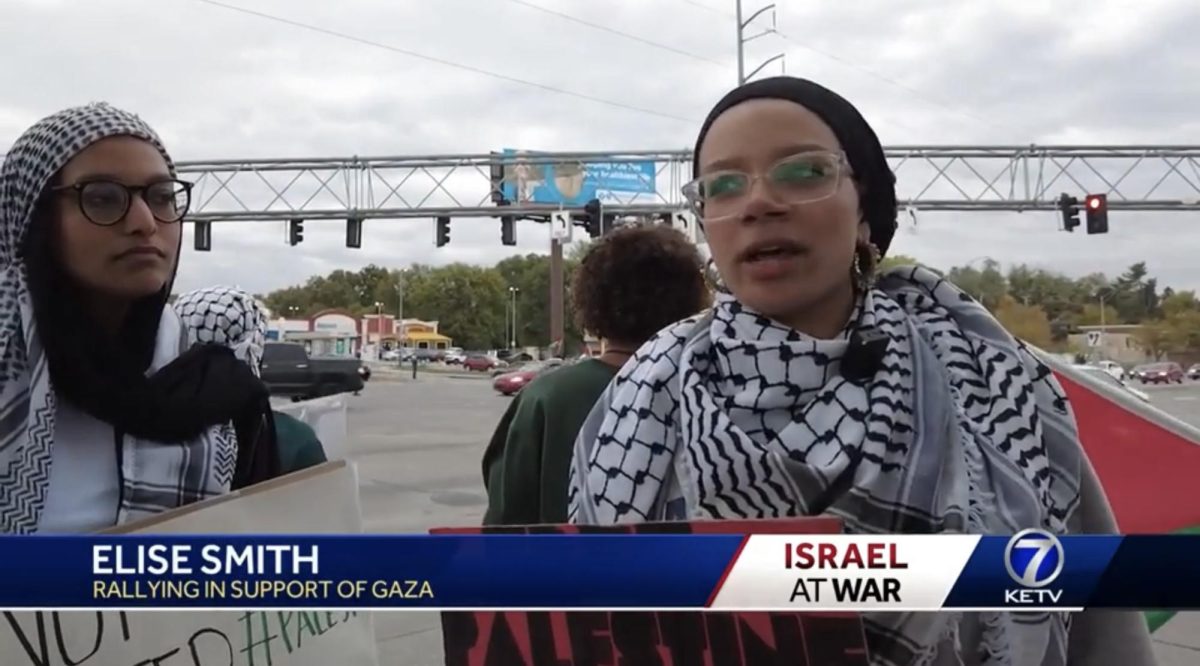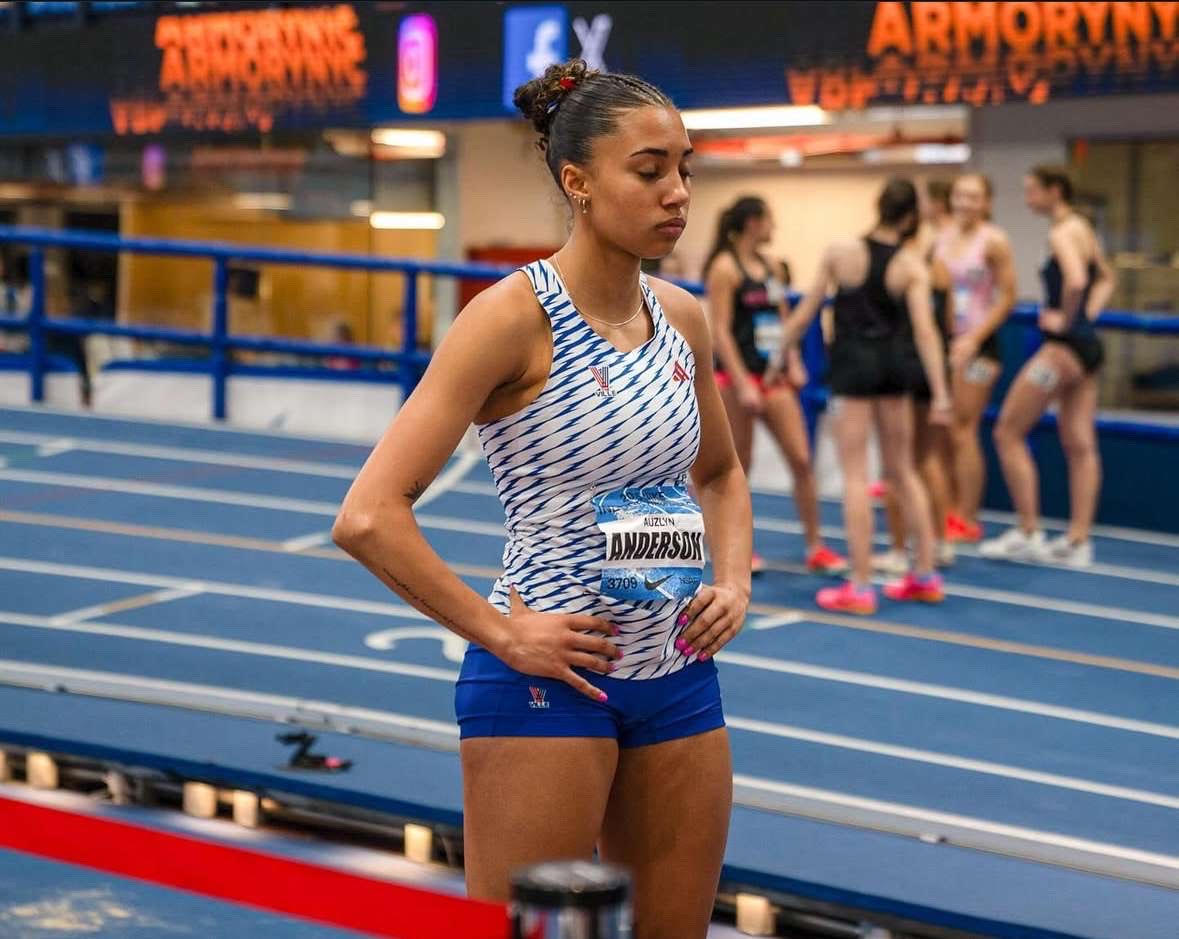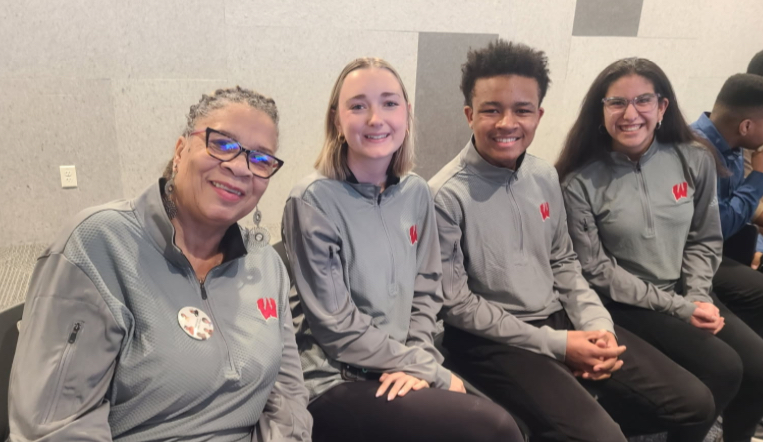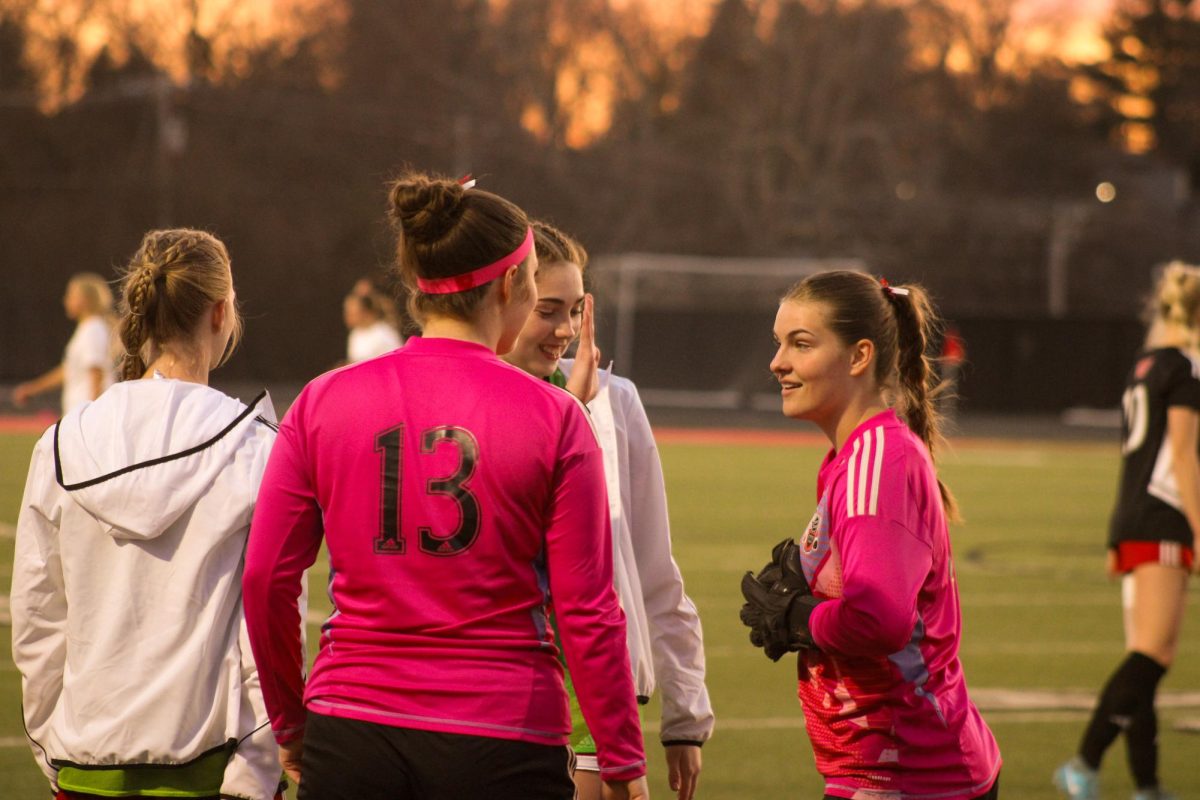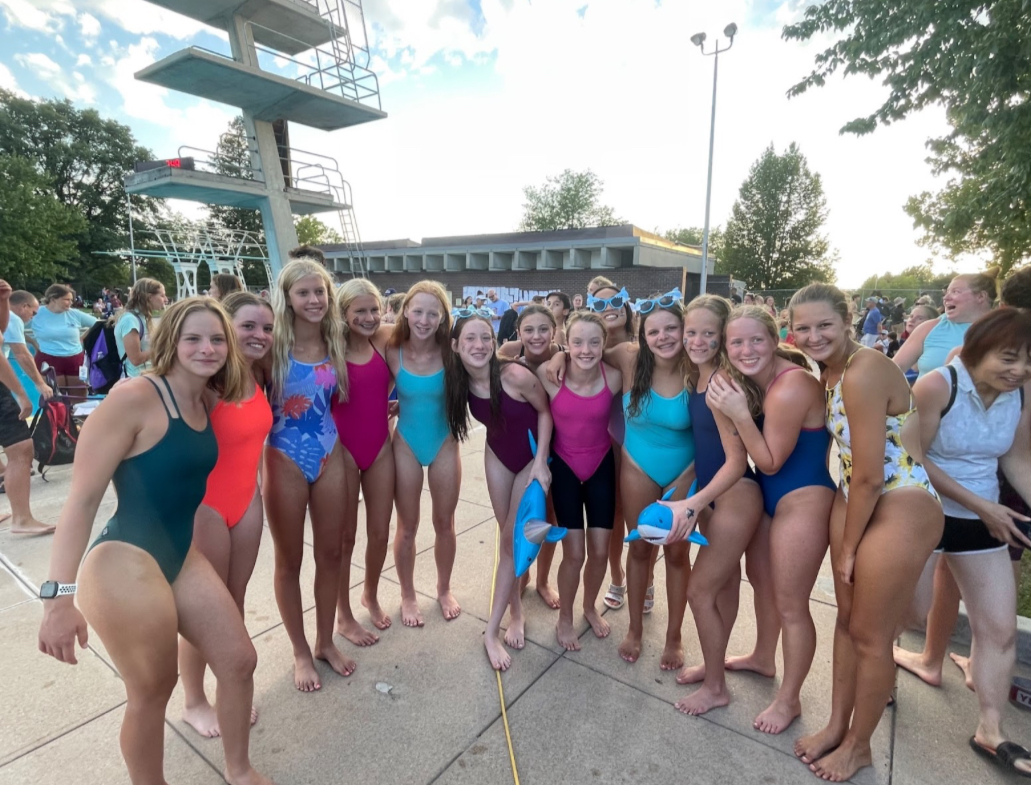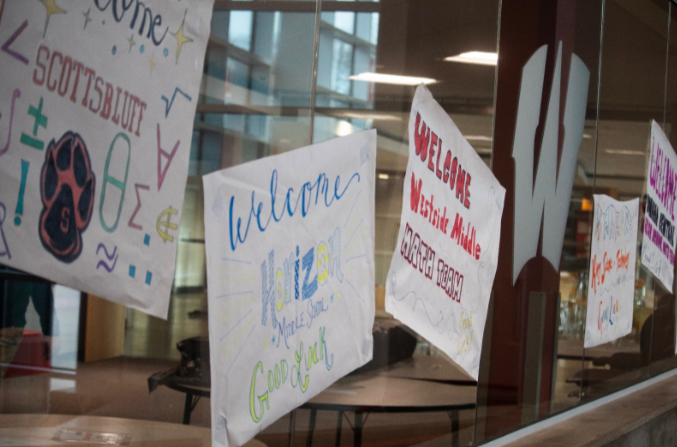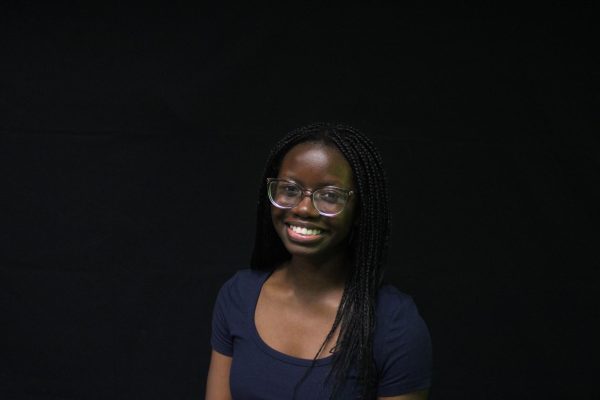The content in this article reflects the views and opinions of Elise Smith, and is not necessarily affiliated with the views or opinions of Westside Wired and Westside Community Schools.
This story has been edited from its previous version.
Gaza is home to one of the world’s most current conflicts, where more than 25,000 civilians have been killed since Oct. 7 in the Israeli-Hamas conflict. The daily death rate in Gaza (250) is currently higher than any other major 21st Century conflict.
Westside Alumnus Elise Smith is working to support the rights of Palestinians affected by recent Israeli attacks. Smith is currently a student at the University of Nebraska at Omaha, and is no stranger to standing up for others.
“I’ve always been interested in civil rights,” Smith said. “My parents grew up in the 60s and were part of the desegregation of Bryan High School, so I’ve always been taught about those monumental pieces of time.”
As a young teenager, Smith took steps to bring light to issues in her community.
“I think the first time I took any large action was back in middle school,” Smith said. “There had been a really bad school shooting, and a group of us decided to walk out. I was 13, maybe 14 years old. The next step was when I was 16: I hosted my rally for Black Lives Matter, and since then, I’ve been pretty active in a BLM chapter as well as being a part of Nebraskans for Peace, and Students for Justice for Palestine at UNL.”
Now, Smith focuses her time rallying for a ceasefire in Palestine. She’s had the opportunity to travel to support the cause, and works locally to provide community members with information on the matter.
“A small group of students and I had gone to D.C. for the National March, which was early November,” Smith said. “There have been a lot of allies and protests and trying to host educational kind of fundraisers to bring awareness and also raise money for Gaza.”
Nebraskans for Peace is a grassroots statewide organization focused on promoting peace through education, advocacy, and political action. With the organization, Smith participates in rallies at 72nd and Dodge nearly every Wednesday, Friday and Saturday. She also presents students with resources they can use to get involved.
“We’ve protested downtown too,” Smith said. “We march through populated areas where people can read the signs and learn with statistics. Specifically on campus, a few of us have handed out flyers that encourage people to call their senators and their elected officials and demand a ceasefire.”
In addition to the flyers, Smith emphasized the importance of teaching as a way to inform the public.
“We brought some people that were born and raised in Palestine and witnessed the first Nakba in 1948 [for a teaching event],” Smith said. “We gave some people some background knowledge on the country itself.”
Smith believes giving such information is critical, especially for Americans who are removed from the conflict.
“I think it’s really important especially for Westerners to be able to see what it’s like in the East,” Smith said. “There’s definitely a misrepresentation that’s existed for a very, very long time. Western media is not always going to give us the facts, it’s not always reliable. Being able to share the kind of news I hear a lot from Al Jazeera as well as Eye on Palestine, and then of course individual reporters like Bisan and Motaz, it’s really important to spread those stories because they don’t get the same kind of recognition.”
Smith regularly reposts on-the-ground news and statistical reports on her Instagram account, which she believes is an accessible and effective way to spread her message. She also shares information for the public to see.
“I think that social media and the internet can be a beautiful and incredibly useful tool when you need it to be and you’re using it in the right manner,” Smith said. “I think especially for young people, it’s really easy for us to get connected. I try to post all the flyers, give everybody plenty of time to come down and reach out to people. The organization I’m part of, Nebraskans for Peace, we have an Instagram page and we have a large following there as well.”
The Metro is home to many different opinions on the Israeli Palestine conflict, which Smith has had navigate throughout her experience protesting.
“We’ve definitely had our fair share of altercations with people,” Smith said. “People say incredibly nasty things and wish harm on me. They confuse our message and criminalize the way we are to dehumanize us in the public’s eye, and that experience is equally eye opening. It’s obviously not something I enjoy but it’s interesting to see the way that demanding justice and peace is received where I live.
Smith’s experience with dissenters has opened her eyes to the diversity of opinions in the area, and serves as a reminder that not all agree with the idea of Palestinian freedom.
“It’s really opened my eyes to you know, the kind of people that I surround myself with and the people that I’m with and, you know, kind of the direction that humanity as a whole is going,” Smith said. “It’s equally uplifting as it is almost disheartening, but you can’t get angry, you just have to hope that eventually, they will go out and get the information that will put them in the right direction.”
Smith has received positive reactions from the community, especially peers on UNO’s campus.
“I have definitely gotten some people that I never thought would speak up about this issue or even be interested in this issue to come down to the protest with me,” Smith said. “It’s definitely really emotional; It’s wonderful to be surrounded by people that care and that understand where you’re coming from because especially living in places like Omaha, sometimes it feels like nothing you do matters. It’s nice to be surrounded by people that are fighting for the same cause.”
On Friday, Dec. 8, the U.N. Security Council met to respond to the Secretary-General’s urgent warning of a humanitarian collapse in Gaza. Like Smith, many were upset to hear that the U.S. voted against an Israeli ceasefire.
“It’s heartbreaking that our country has been given the chance to do something great to try and help the people in Palestine, and unfortunately, we made the very, very wrong choice,” Smith said. “I’m not at all surprised that [the U.S. is] unwilling to play the humanity card and have a ceasefire, even though they have the power. That’s the really unfortunate part. This relied on the United States going ahead and approving this and they’ve voted against it, which, like I said, is not surprising because the U.S. has been an Israeli ally for the longest time.”
Disappointed by the U.S’s response to the conflict, Smith takes matters into her own hands and hopes the community will see her work for its impact, not the face behind it.
“I try to remove myself personally from what I do,” Smith said. “I want people to see the bigger picture which is liberation and protecting Palestinian rights, and ending this genocide rather than looking at me as like, ‘oh, wow, that’s that’s impressive,’ but if it gets people to come out and support Palestine, if it gets people to, you know, get educated, that’s really what matters most to me. It’s just people learning more, that’s what I love to see.”
Smith cites apathy as a reason why many Americans refuse to take part in advocating for a ceasefire.
“We don’t know what it’s like to see bodies in the road,” Smith said. “We don’t know what it’s like to have our homes be demolished by missiles. Unfortunately, in Western culture, it’s incredibly normalized that you don’t care about something until it’s affecting you. And because this is happening thousands of miles away, I think a lot of Americans don’t have the empathy to really relate and take action.”
Though she holds no familial ties to Palestine herself, Smith carries a compelling message detailing why she has stood up and taken action.
“I care because I’m a human,” Smith said. “Especially as a Black woman, the oppressed always have to stand with the oppressed; We have to overcome the oppressor together. As a Black person, as a woman, as someone who has been oppressed by the system, I’m always going to look to other people, to help them with their own liberation. That’s what humanity is about.”



